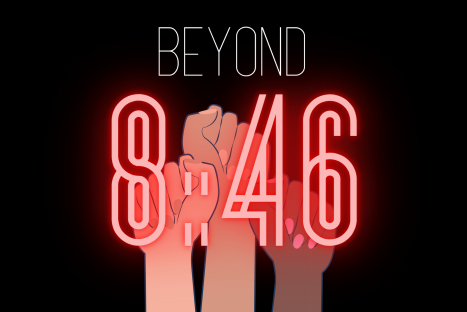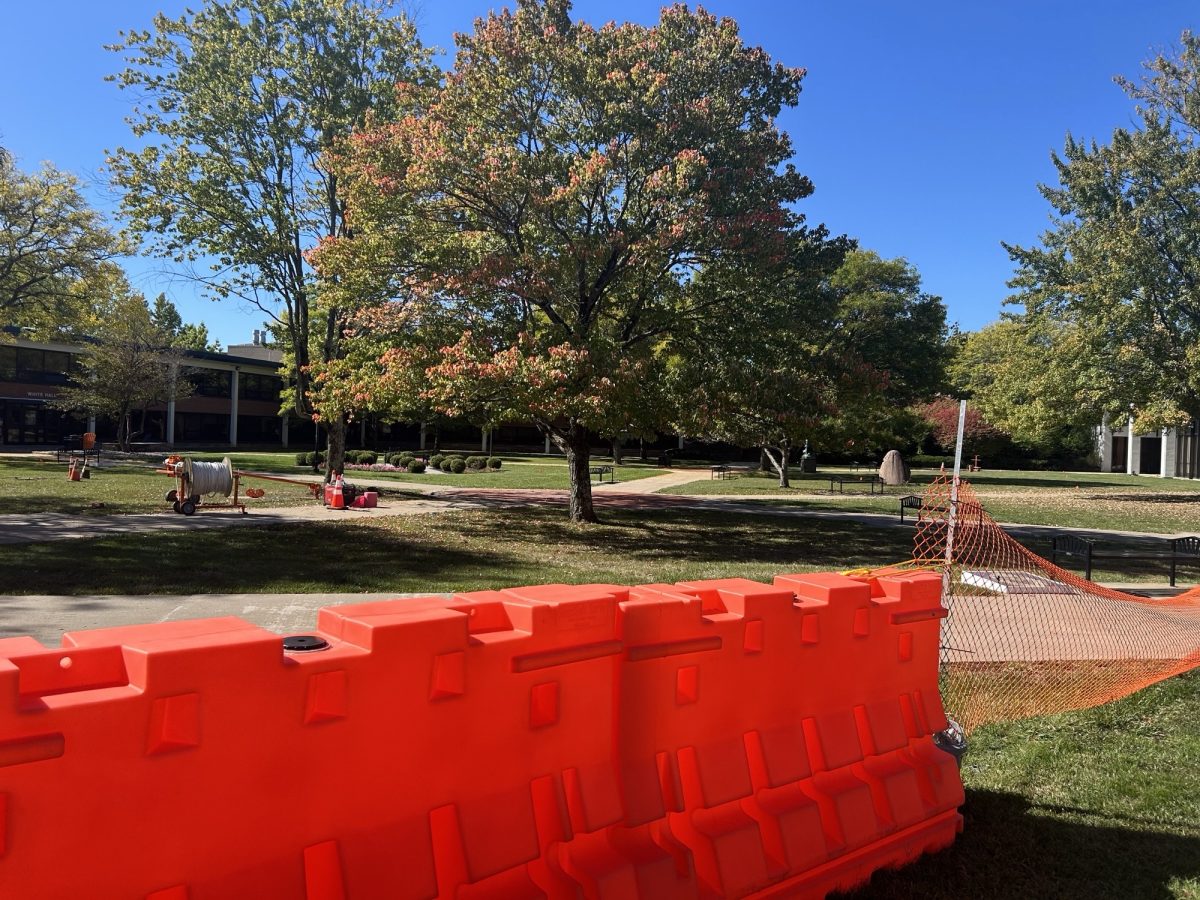One year after the murder of George Floyd, the Utica College community engaged in moments of silence and a time for reflection in commemoration of his life.
The April 22 event, titled “Beyond 8:36,” came two days after former Minneapolis police officer Derek Chauvin was convicted of second-degree murder, third-degree murder and second-degree manslaughter for the murder of Floyd.
Students, faculty and staff gathered via Zoom to express their concerns, condolences and hopes for future racial justice. The title was given because of the initial time Chauvin knelt on Floyd’s neck, which was later found to be 9 minutes and 29 seconds.
President Laura Casamento who was not able to attend the event left Vice President of Diversity, Equity and Inclusion, Anthony Baird with a message.
Recent Posts
- Slashed SGA budget sparks student frustration at recent meeting
- Editorial: Your campus, your voice – How to reach us when you want to speak out and how we make editorial decisions
- Op-Ed: Why Black student perspectives matter in campus reporting
- Conservative activist Charlie Kirk’s death shocks Utica University students
- Op-Ed: Utica student looks to start new multi-faith discussion group on campus
“We can not allow the verdict of the Minneapolis jury, as historic as it was, to be about one man, one life, one community or one moment in time,” Casamento wrote. “Tuesday’s verdict is a beginning and is a reason to be hopeful. Here at Utica College toward a more diverse and equitable environment will continue.”
President of SGA Kat Hawley spoke on behalf of the student body.
“We stand with all those who believe in equal justice and opportunity for all, and state that no persons civil liberty, rights or freedoms should be compromised due to the color of their skin, ethic, heritage, religious beliefs, gender identity or expression, sexual orientation, age, ability, geography, political stance or any other aspect of their identity that influences how we see or experience the world,” Hawley said.
Professor Bernard Hyman addressed the legal implications of Chauvin’s trial.
“This is one verdict, in a large group of verdicts,” Hyman said. “This is going to be an uphill battle.”
During the trial, Chauvin was characterized as a “reasonable police officer,” as compared to a normal trial where the jury would be instructed to see him as a “reasonable person.” Hyman saw this act of accepting Chauvins position based on the position he held as condescending.
Hyman said a jury should think to themselves, “Would I, as a reasonable person, act in this manner?”
According to Hyman, the defense counsel for Chauvin made the argument, “Hey, you’re not God. Who are you to judge what he did? He knows better than you.”
History Professor and former police officer Clemmie Harris said the defense strategy was “absolutely reprehensible.”
“I’m here to say to you, that we should see this trial as a very important moment in accountability, but it’s not justice,” Harris said. “What you saw was a system work the way it was supposed to work in providing accountability.”
Harris remarks that the trial was only an act of accountability and that there were no policies changed because of the verdict.
“The very issues that led to George Floyd being arrested are still very much in tack,” Harris said. “What you are witnessing is the unbroken history of police violence that has its roots in the trans-Atlantic slave system.”
The current issues are dwelling from the deep roots of history.
“If, in fact, we were talking about a system of justice, then we would be talking about the need for enduring justice,” Harris said. “Enduring justice requires the fundamental transformation of the unresolved histories of slavery. The unresolved histories of Jim Crow. The unresolved history of colorblind politics and policies.”
According to Harris, the current state of flux in the United States is posing defining questions of what will be valued and believed. He pointed out the questions currently being asked.
“Who will it value?” he said. “Who will it represent? Who will be recognized as being a human being and who will not?”







































































































































